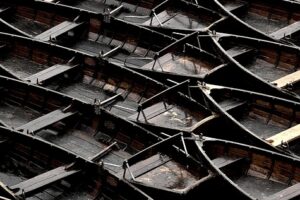The Illyrians were a group of tribes who settled in the western Balkans around the 2nd millennium BCE. They were known for their fierce warrior culture and were skilled in both farming and herding. The Illyrians were also known for their advanced metallurgy, producing high-quality weapons and armor.
At their height, the Illyrians controlled a vast territory stretching from modern-day Albania to parts of Croatia and Bosnia. They were a major power in the region and often clashed with other civilizations such as the Greeks and Romans. The Illyrians were known for their fierce resistance to outside invaders and were able to maintain their independence for centuries.
However, the rise of the Illyrians was ultimately short-lived. As the Roman Empire expanded, the Illyrians were gradually assimilated into the empire. The Romans established control over the region and imposed their own laws and customs on the Illyrian people. Eventually, the Illyrian culture and language disappeared, absorbed into the burgeoning Roman Empire.
The fall of the Illyrians marked the end of an era for the region. The once-powerful civilization faded into obscurity, with only a few remnants of their culture remaining in modern-day Albania and parts of the Balkans. Despite this, the legacy of the Illyrians lives on in the rich history and heritage of the western Balkans.
Today, there is a renewed interest in exploring the history of the Illyrians and uncovering more about this forgotten civilization. Archaeologists are uncovering new insights into their culture, lifestyle, and achievements, shedding light on a once-vibrant civilization that has been largely overlooked in the annals of history.
The rise and fall of the Illyrians is a cautionary tale of the impermanence of civilizations and the importance of preserving and studying our collective past. By uncovering more about the Illyrians, we can gain a greater understanding of the complex tapestry of history in the western Balkans and appreciate the contributions of this fascinating civilization to the world.




























Add Comment